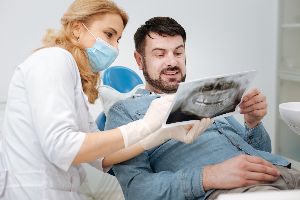
Finding out you need a root canal can be a little stressful, but there's actually little to fear with this common dental solution. Dental techniques have come a long way over the years, and patient comfort is always a top priority with any dental procedure. The following guide will help you feel fully prepared for a root canal.
A Brief Guide to Root Canals
1. What happens during the procedure?
Your dentist will use special tools to access the tooth's interior and remove all decayed or damaged tissue. Once the interior has been cleaned and disinfected, it will be filed down to prevent bacteria from collecting in the future and then sealed with special materials that will ensure stability when biting and chewing. Nowadays, root canal treatments are performed with advanced techniques and materials, making them far more comfortable and faster.
After the root canal treatment is complete, your dentist will typically place a crown on your tooth to safeguard against fracture. This oftentimes happens at a follow-up appointment.
2. How do people know when they need a root canal?

In some cases, you'll only find out you need the procedure after undergoing an x-ray at the dentist. In others, you may experience significant tooth pain and sensitivity due to a bad cavity. Root canals are also used to treat damage to teeth caused by facial injuries or trauma.
3. Are root canals painful?
These procedures are standard, and most patients experience little pain. The dentist will apply a numbing agent to the tooth to limit discomfort. They'll also recommend an over-the-counter pain reliever to address soreness afterward. Additionally, if you were having tooth pain before the root canal, you will experience a great deal of relief once it's complete.
4. What can I expect during the recovery?
You should wait to eat until the numbing agent wears off. From there, focus on nutritious soft foods, such as yogurt and smoothies. If you have a temporary crown, chew on the opposite side of your mouth until your final crown is ready.
Be sure to take any medications, such as antibiotics, according to your dentist's instructions. Don't smoke, as this can delay healing. You can begin caring for your teeth as you usually would immediately after the procedure; just exercise care when brushing or flossing around the affected tooth.
If you're looking for a kind and caring dentist who performs root canals in-house, rely on Family Dentistry Associates of Monona, Dental Associates of Prairie du Chien, P.C., and Waukon Dental. They offer root canals and other advanced dental procedures right in their clinics. They also provide families with various treatments and procedures, including cosmetic dentistry, teeth whitening, and oral exams. To learn more about their dentists and services at their three convenient locations, visit Dental Associates of Prairie du Chien, P.C., Family Dentistry Associates of Monona, and Waukon Dental online.
About the Business
Have a question? Ask the experts!
Send your question

